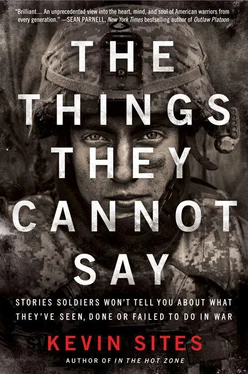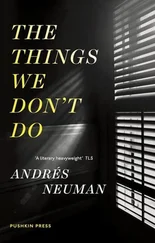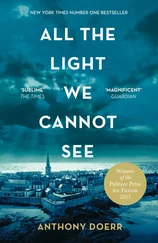To Iscol, Cullen was more than a coach; he was a living hero, though he no longer looked the part. Bald and bulldog paunchy, Iscol says Cullen never talked about his 1967 tour in Vietnam but carried it with him quite visibly. Once when he removed his shirt in the locker room to shower, Iscol caught a glimpse of three big divots in the ex-Marine and onetime college quarterback’s shoulder where he was shot by an antiaircraft gun used to fire on U.S. troops. Cullen took the hits and still kept leading his men in the fight. Cullen told Iscol that if he insisted on joining the military, the Marines were the way to go. He said there was no better leadership training, no better preparation for the real world. While still at Cornell Iscol began a program called the Platoon Leaders Class, in which he went to officer candidate school over two summers before his sophomore and senior years. He was commissioned as a Marine officer in 2001, a year after graduating from Cornell.
“My dad had been in the Air Force for two years and grandparents on both sides of the family served in World War II,” says Iscol. “I had a pretty great life; I owed my country something. I felt like I needed to serve. I was idealistic.”
Iscol’s first deployment with the 1st Battalion, 1st Marines wasn’t what he had bargained for. While he had hoped to be part of the main fighting effort near Baghdad or al-Anbar Province, he ended up commanding small boat operations in the Shatt al-Arab waterways in the south near Basra.
“Day and night we were running patrols along the waterway, boarding fishing boats and seizing weapons or intercepting smugglers going into Iran with oil,” says Iscol. “Every boat we inspected had signs of smuggling and their bilge tanks were filled with oil. Most boats had fake floors with storage space underneath. We’d use six boats on these patrols; two boats would provide overwatch, with snipers circling the boat you were boarding. Then we would use the others to form a boarding party up,” Iscol says. “First we’d stop the boats, asking permission to board. The captain is told to get all of his men out on his deck in one place. Then we’d search for weapons and other contraband.”
It was not the kind of action he was expecting to see in Iraq.
“Here were these major historical events going on and I had not been a part of it,” says Iscol. “It was the kind of feeling someone from the ‘Greatest Generation’ might have had being rejected for service in World War II because of flat feet.”
But as soon as he got home to the States, Iscol started searching for a way to get back. His platoon sergeant had a friend in another battalion, 3/1 Marines, and after sending e-mails and making phone calls, they both wrangled a transfer to the unit. By June of 2004, Iscol was in Iraq again, after spending only a few months at home. A week into the deployment Iscol was made commander of a Combined Action Platoon of Marines that embedded for the next four months with six platoons of Iraqi National Guard soldiers. Five of the platoons, Iscol says, were made of up of Shias and had a record of fighting effectively alongside Marines. One platoon, however, was dominated by Sunnis and was likely, he says, to have had ties to the insurgency.
It was here Iscol met the most important man of his deployment, his interpreter Khalil Abood. Abood would become Iscol’s liaison, guide, teacher and confidant. Their relationship would become so close that some of the Iraqi soldiers started calling Abood “Abu Zachi,” or “the father of Zach.”
After the U.S.-led invasion of Iraq, Abood was trying to support his family on his $10-a-month pension. He went to Amadiya, where the American Army had just set up an outpost, and got a job working for them. He eventually ended up in al-Anbar Province working with the Marines.
Abood had the gravitas to deal with everyone on their own terms, from poor farmers to distinguished sheiks. In fact, Iscol says Abood’s rapport with tribal leaders was so good that Iscol sometimes felt like a little boy trying to be a grown-up when he was with Abood. This frustration came out early on in the deployment when Iscol interrupted Abood during a meeting with tribal elders.
“I appreciate the fact you’re talking with them, but do you mind translating so I’m not left out of conversations?” he remembers saying. But in fact, Abood had only been greeting them and making salutations; they hadn’t even begun talking business yet. The room went silent. “I knew then,” says Iscol, “it was a moment for me to check my arrogance at the door and be humble. Abood knew a lot more about any of this than I did.”
“The next six months we were working together every day. He was my eyes, ears and voice,” says Iscol. “In terms of trusting him I felt Abood is like Geppetto: he has a very old soul, a decent human being. There was just something about him.”
And it would be during one defining moment for Iscol that Abood would provide the greatest guidance and support, for which Iscol would spend much of his time after returning to America attempting to repay him.
“We got a call from our battalion that night that a high-value target would be traveling from Fallujah to Baghdad. We needed to set up a checkpoint, put out the wire, put out cones. And since a lot of times insurgents would drive up to checkpoints, shoot at us and run away, I had an idea that we would set up cat claws, remote-control spike strips to pop up and shred their tires as they tried to make their retreat. We set this up on Route Michigan five kilometers east of Fallujah. [23] In Iraq and other wartime operations the U.S. military typically renames major roadways in terms more recognizable to their troops than the names used locally. MSR Michigan, for Main Supply Route Michigan, and MSR Tampa are examples of roadways renamed during the war in Iraq. They are used consistently across all American military maps and GPS systems so that forces will see and use the same terms of identification during missions.
We’re in an ambush position and wait, then at a certain point in the night a dump truck flies by,” says Iscol. “It crashes through the first barrier. And our machine gunner opens fire on it”—as Iscol says he ordered the Marine to do under those circumstances. “Then everyone opens up, including the Iraqis [the Iraqi National Guard]. Another problem: we had a poor geometry of fire and some of those rounds being fired at the truck are landing near us since we were waiting by the spike strips. We thought we were being shot at. Finally, the dump truck rolls off the side of the road.”
The Marines assumed the truck was a VBIED, American military lingo for “vehicle-borne improvised explosive device.”
“We waited for it to explode, but it didn’t,” says Iscol. “While one of my Marines covered, another opened the door to the vehicle. We saw the old man who had been the driver. He was dead, his dishdash covered with blood. I remember the smell… diesel fuel mixed with blood,” says Iscol. He’s quiet, circumspect, as he goes back to that place in his mind.
“At that point you want it to make sense,” he says when he continues. “We wanted to believe we killed a bad guy, rather than a civilian. So I start thinking maybe something else would explain why he ran the checkpoint. We checked his truck. There were tons of white boxes but no contraband. The thing that I remember the most was not the visual; it was the smell. Unrefined diesel fuel and blood seeping from the door. The cabin was just shot to shit. The metal looked like Swiss cheese, all the metal, the bench seat, all shot up. And there was this older Iraqi man, maybe in his sixties. His face was fine, untouched, but his dishdash was soaked in blood.” Iscol pauses.
Читать дальше












